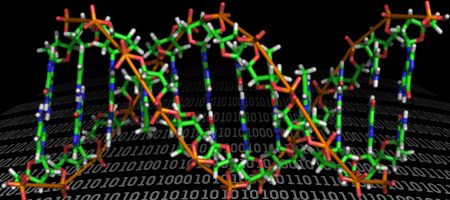
We are those mutants.
The Human Exemptionalism (or sometimes ‘Exceptionalism’) Paradigm is the idea that humans are somehow separate from nature or that we have transcended it in some way through spirituality, technology or consciousness. It is a paradigm that is shared between many of the religious ideologies of the world as well as many devotees of science and technology. Both types of adherents believe humans have been given, either through a higher power or our own ever-growing ingenuity, a special place in the world. Often, part of this paradigm is that we have made our lives so easy and safe that we are no longer subject to evolutionary pressures. It is another symptom of the short-sightedness of our culture.

Fortunately, it has been increasingly under attack. Founding Environmental Sociology in the ’70s, William Catton and Riley Dunlap proposed what they called the New Ecological Paradigm, which recognizes that humans are simply another part of nature, albeit a stunningly unique and fascinating one. In that same decade, E.O. Wilson coined the term (and started the discipline of) Sociobiology, a somewhat controversial field. Despite hurdles, it is gaining ground. Frans de Waal is a primatologist doing amazing work on primate social behavior. His book, Our Inner Ape, is a fascinating look at what we humans can learn about ourselves by looking at chimpanzees and bonobos, our closest relatives. There was also the Mike Judge movie, Idiocracy. And before all of them, of course, we had Buckminster Fuller.
More recently, another major blow was dealt to this fading paradigm, and a very interesting one at that. Researchers led by Henry Harpending at the University of Utah took genetic samples from people from around the world and compared genetic variations called “single nucleotide polymorphisms.” These SNP’s, as they’re called, are very small mutations that can be compared to determine the approximate age of a gene.
The conclusion of this research is that not only are we still evolving, but that the rate of our evolution has accelerated. They also found that geography still matters – that people are evolving apart from each other, despite the increasing capacity of intercontinental travel.
“History looks more and more like a science fiction novel in which mutants repeatedly arose and displaced normal humans – sometimes quietly, by surviving starvation and disease better, sometimes as a conquering horde. And we are those mutants.”
As in cultural development, we may want to be careful about how fast we change, though. A study by Harvard scientists came out in October that found that beyond an evolutionary “speed limit,” species risk genetic instability and extinction.
Another important field of study that is breaking down the Human Exemptionalism Paradigm is epigenetics. Epigenetics is basically the study of how cells know which parts of the genetic code to read and, as a result, whether to be heart cells, skins cells, liver cells, etc. There is much to be learned still, as epigenetics is a fairly new field, but it is clear that environmental factors play a role and, surprisingly, that their effects can be heritable.
This really good 13-minute mini-documentary about what identical twins can teach us about epigenetics was made for PBS. It reminds us that we are not responsible for our genome, but that we are responsible in many ways for our epigenome.
Join our newsletter for the latest in long-term thinking
Subscribe